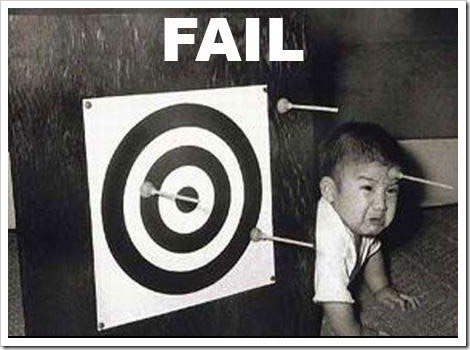Forecasting has long been the millstone around every salesperson and sales leaders neck. I often jest that my beautiful shiney head is down to the many years of managing sales teams and their creative forecasts.
The quality and accuracy of forecasting has advanced as much as an asthmatic ant with a heavy shopping bag in recent years.
Last week I was chatting with a global sales leader in a pretty cool and funky software company and inevitably the question about his main problems came up, and he went off on one, the amount of times he used the F word was shocking.
Now this was a successful company with good revenue growth, but once you look under the covers you discover the wart’s and all challenges.
Good, bad and average performing sales teams share common forecasting issues, but, wait for it…………. forecasting is not a problem!
Bare with me as I’m going to state the bleeding obvious, forecasting is not a problem, it’s a symptom of the real problem.
Stay with me, here’s why.
Everyday I talk with sales leaders and I ask them all the same question – “Do you think if your salespeople knew more about their prospects they’d be more effective selling to them”?
Most responses come after a pause to digest the question, but every single time the answer is the same, it’s a categoric yes.
Can you see where I’m going with this?
Sales leaders are frustrated with inaccurate forecasting.
Sales leaders acknowledge their teams need to know more about their prospects.
Come on people the two are inextricably linked, and the path to improvement is clear.
How can salespeople forecast accurately if it’s based on missing data, assumptions and guesswork?
If you want to break it down into bite sized chunks, here goes:
Problem – Salespeople don’t know enough about their prospects
Symptoms that the problem exists – Inaccurate forecast
Impact of the problem – Poor business decisions can be made
Who’s affected by the problem – The business
Cause of the problem – Salespeople don’t do enough of the right research and discovery
The more you know about your prospects business problems, buying process and the people who decide and buy, the better equipped you are to understand if they’re a good fit, how to help them and to forecast accurately. It’s simple, but hard work.
I’m not going to get on my soapbox and start ranting about discovery, but what I will say is don’t limit discovery just to qualify an opportunity, don’t make it about creating the chance to pitch, demo and sell. It needs to be much more buyer centric.
Good sales engagements require you to dig higher, deeper and wider, there are very few shortcuts.
In summary most salespeople don’t know enough about their prospects and most sales leaders don’t know that they don’t know.
The fault lies with both parties, but primarily with leadership because they should be drilling down on the most relevant details that contribute to their teams forecast, not on the numbers and dates. It’s what they know and what they do about it that leads to the numbers.

